Eco-Warriors: Exploring sustainability through hands-on learning
While nestled in the heart of Detroit, Wayne State University's commitment to environmental research extends far beyond city limits. From the tranquil forests of northern Michigan to the state's expansive waterways, WSU faculty and students are pioneering solutions to today's most pressing environmental challenges.
Here are just a few ways Warriors are paving the way for a greener, more sustainable future.
Petrology and structural geology
A group of environmental science and geology Warriors from ESG 3160: Petrology and ESG 3300: Structural Geology hiked and camped through the St. Francois Mountains in southeast Missouri. The students studied a wide range of igneous rocks, from granites and gabbros to rhyolites and ignimbrites, in their natural habitat. Wayne State's Department of Environmental Science and Geology is known for its once-in-a-lifetime field trips where students are immersed in the subject they study. During this trip, students camped in tents to best learn about earth materials and processes in a unique and hands-on way.
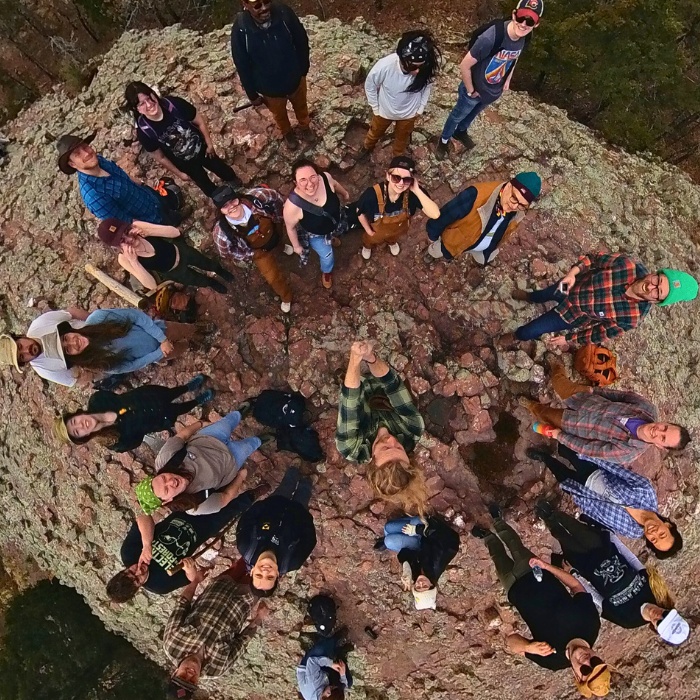
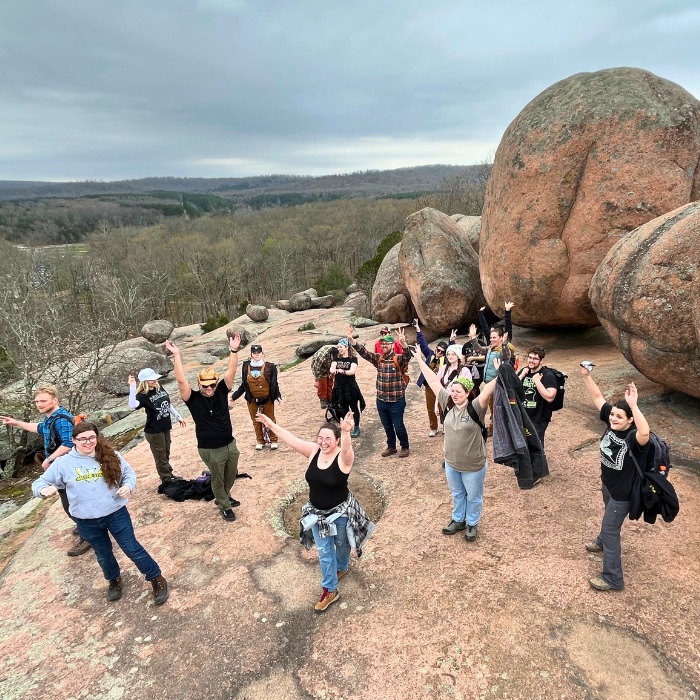
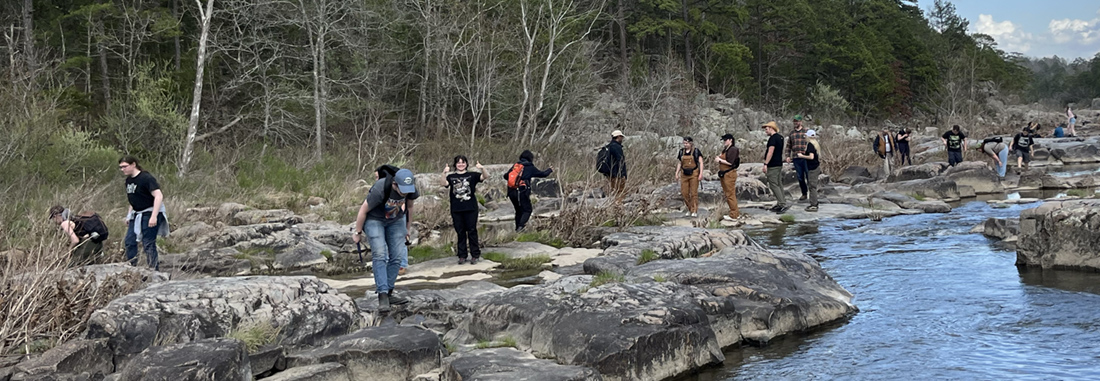
Aquatic ecology
Biological sciences students from BIO 5100 and BIO 7110: Aquatic Ecology tour the Water Waste Treatment Plant in Ypsilanti. The group got a firsthand look at various aspects of wastewater management and protective measures that go into keeping Michigan's waterways safe.
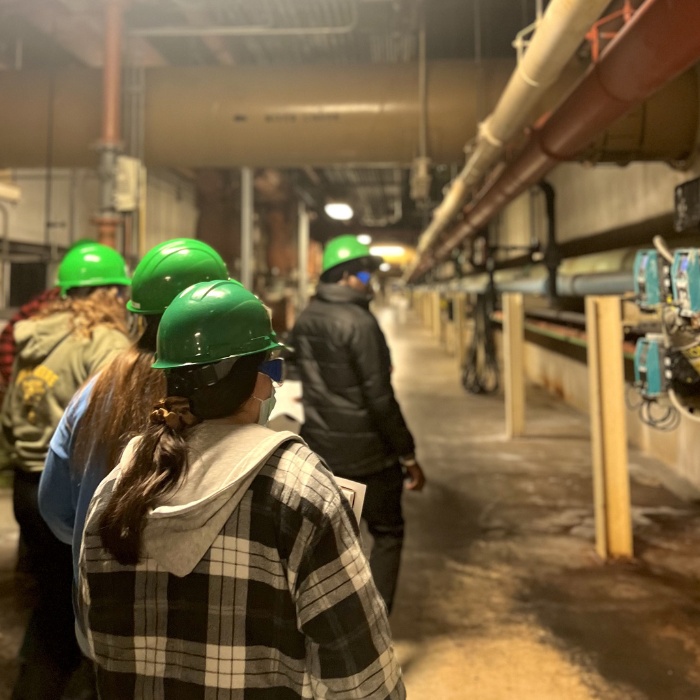
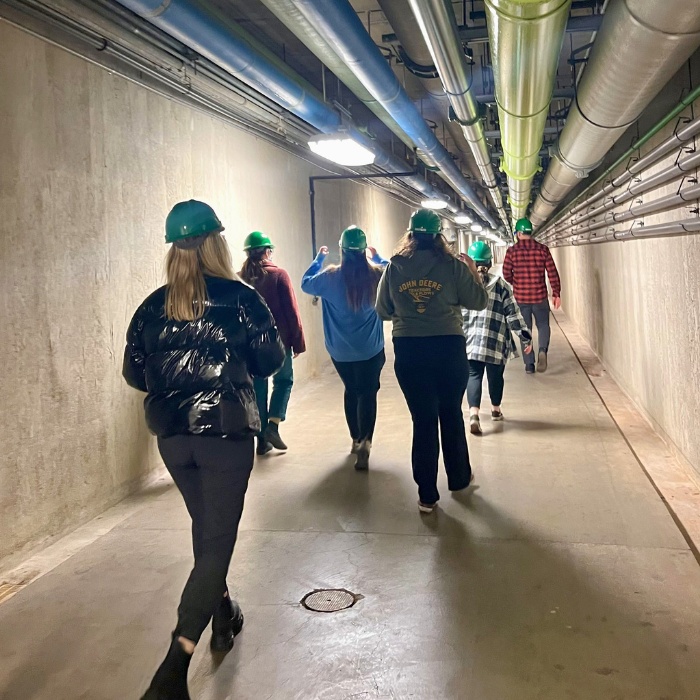
Ecology
This semester, a group of biological sciences students from BIO 4130 visited Maybury State Park to assess terrestrial and aquatic diversity. Led by biological sciences professor Glen Hood and teaching assistants Sarah Black and Mike Sergeant, the group took samples and assessed water quality in the university's aquatic lab.
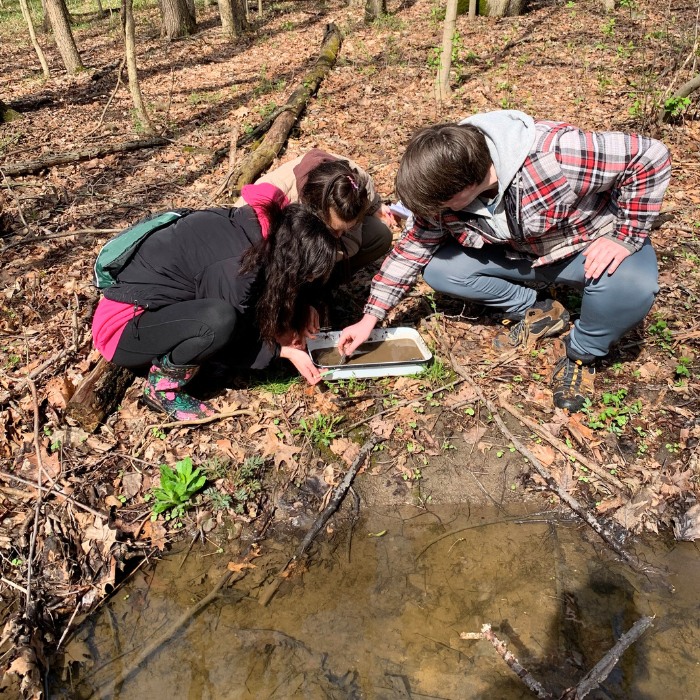
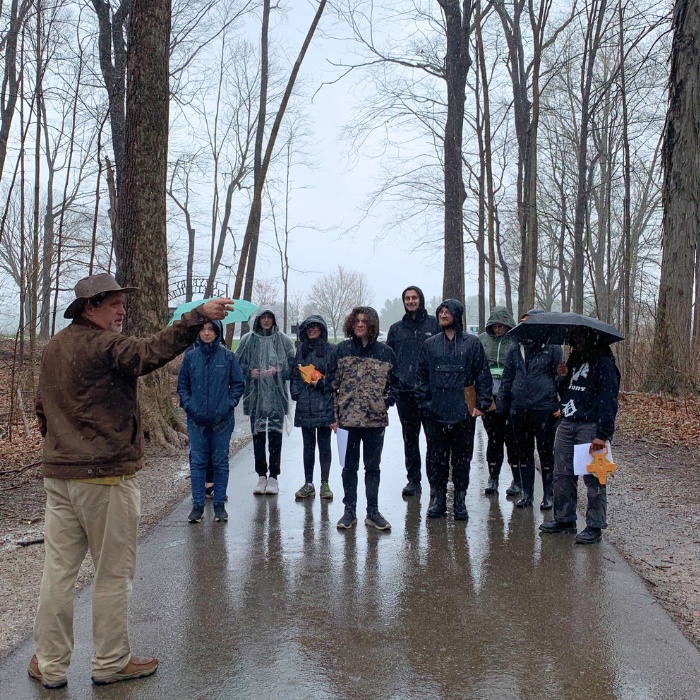
Habitat assessment
Located only two miles from WSU's campus lies the Detroit River, one of the busiest and most important international waterways in the world. This semester, students from BIO 5100 and BIO 7110 — Aquatic Ecology were tasked with conducting a thorough habitat assessment to evaluate the river's water quality and monitor fish populations. Through this immersive experience, Wayne State students gain invaluable insights into the dynamics of local waterways, equipping them to identify potential challenges and seek sustainable solutions for environmental preservation.
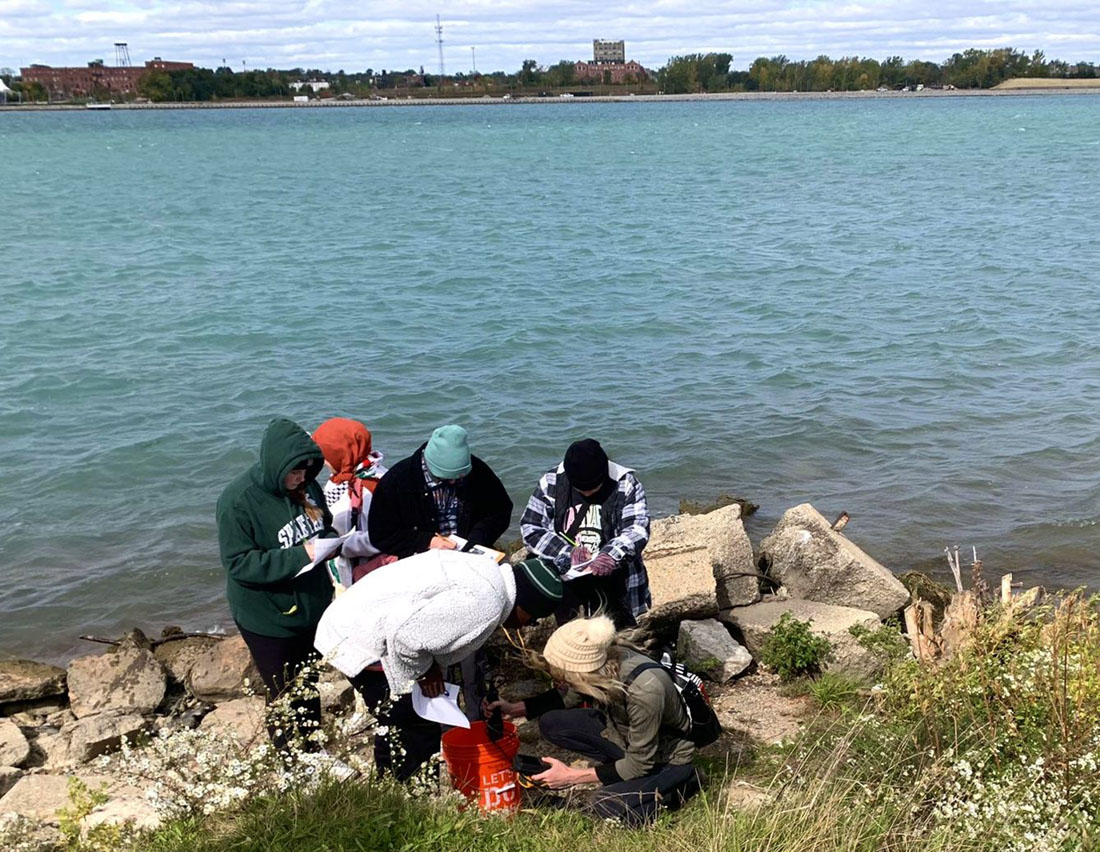
Urban forestry
Supported by the Michigan Department of Natural Resources, a team of Wayne State biology students is looking for clues behind a recent tree die-off event on Detroit's Belle Isle, a 982-acre island park located in the city. Due to unusually high rainfall and elevated Great Lakes levels, a significant number of the island's trees died in 2019. This study, led by graduate student Erik Fleissner, aims to track the changes in tree populations and investigate how factors like slope and location affect these changes.
This research is crucial for understanding how forests in the Great Lakes region, particularly wet-mesic flatwoods, are affected by climate change-induced heavy rainfall. Insights gained from studies like this can help forest managers develop strategies to protect these valuable forest types in the future.
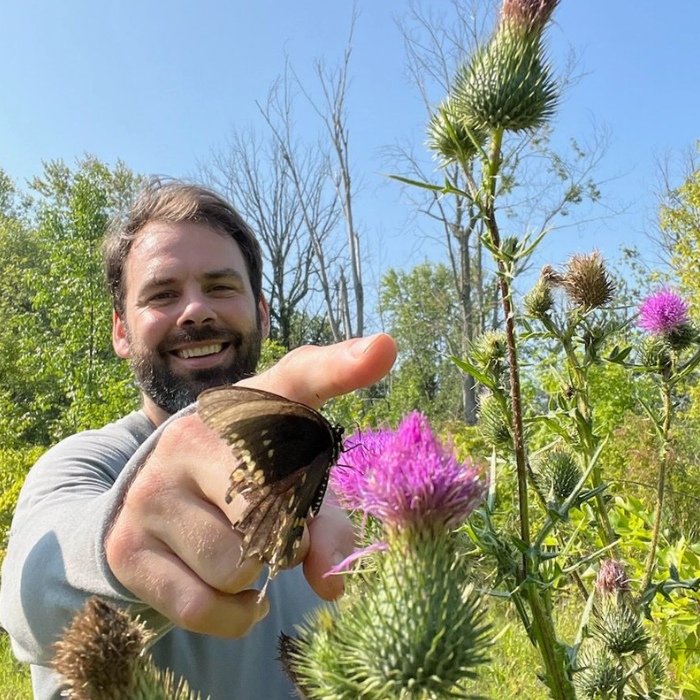
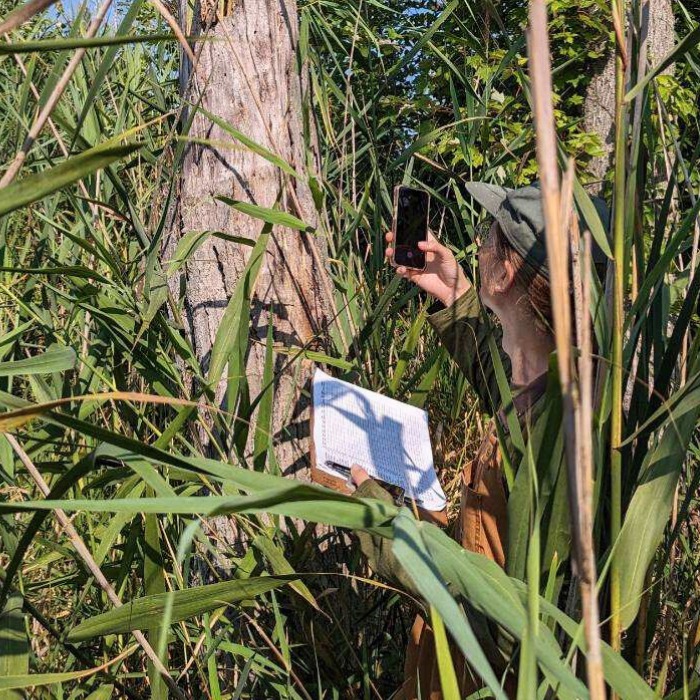
These experiential learning opportunities are a key component to WSU’s College to Career initiative which seeks to provide every student with learning opportunities that allow them to encounter the world, gain deeper insights and new perspectives, and prepare for prosperous careers.